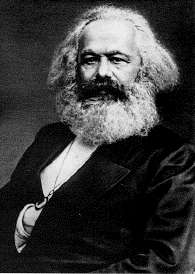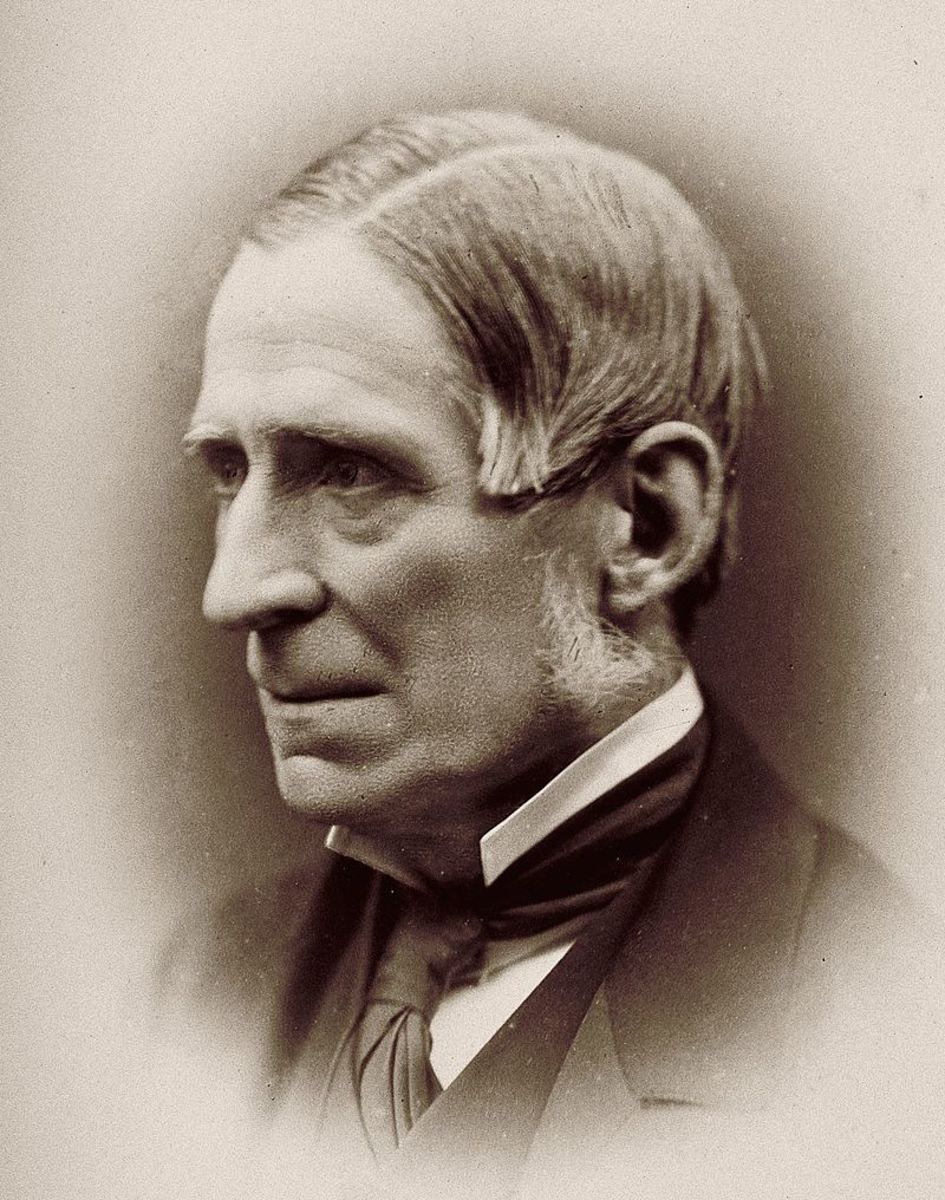A Brief Ideological Analysis of Karl Marx

What was Marx Most Noted For?
Karl Marx is primarily known as the founder of “scientific socialism” and for co-writing both Das Kapital and the Communist Manifesto (Gutek, 1995, p. 282). Unlike the peaceful Utopian socialists, Marx envisioned and predicted a great upheaval between the classes where the proletariat, or working class, would overturn the bourgeoisie, and the world would eventually commune together in harmony after a brief period of dictatorship
Bibliographic Information:
Marx first attended the University of Bon, where he studied law; he then transferred to the University of Berlin where he studied Hegelianism (European Graduate School, 2011). Marx’s social and economic theories were heavily influenced by many people, including Moses Hess — who denounced private property, Georg Hegel — who believed in a “ceaseless succession of ideological conflicts”, Ludwig Feuerbach — who denounced materialism, and Claude Henri — who suggested a “restructuring of social institutions” (Gutek, 1995, p. 284-285).
Marx co-wrote The Communist Manifesto and Das Kapital with Friedrich Engel, who was also a student of Hegelianism. Hunt (2009) suggests Marx would not have been able to achieve the intellectual legacy without the work of Engels” (paragraph 19). Since Engel’s job working on the factory floor afforded him first-hand experience with workers and capitalism, he was able to impart vital to Marx when while writing their books; Marx however, had a better overall view of communistic theories (Hunt, paragraph 2-3).
Despite Engels’ less notable role in the writing of The Communist Manifesto, he was much more than a statistical gatherer; “he became Marx’s sounding-board for his emerging economic philosophy” and helped flush out “methodologies objections” and other more detailed issues with the Communism philosophy that Marx may not have initially been able to work out alone (Hunt, 2009, paragraph 17). Not only was Engle only Marx’s friend and working partner, he also helped support Marx’s family by mailing them a hefty allowance, “regularly allocating over half his annual income to the Marx family” through the ultimate communistic act, notes Hunt (paragraph 15). After Marx’s death, Engel reedited Marx’s works to add credible, first-hand information on the treatment of works in the factory (Hunt, paragraph 11).
According to Gutek (1995), Marxism and especially neo-Marxists theories viewed education as an “arena of class conflict” because the class in power often controls and exerts power over the educational system (p. 295). For Marx, social control was key to the communist movement.
Historical/Political Context:
Dugger and Sherman (1994) note that Marx broke down society – such as politics, education and religion – into different social structures. Marx believed that equality was impossible when the laborers were ruled by a political force (Arendt, 2002, p. 302-303). He opposed Adam Smith’s view of capitalism, and believed that labor - or one’s work- was exploited by capitalism. Although Marx did not directly write about education, he believed students should be taught by people who supported the communist movement and were not loyal to the past capitalistic regime.
Beliefs on Education:
Marx recognized that the educational system would have needed to change to reflect the new communist society once the proletariat overtook the bourgeoisie (Gutek, 1995, p. 292). Marx would want teachers loyal to the old methods and philosophies to be eliminated, with new teachers loyal to the communist philosophy replacing them and indoctrinating students with new communist beliefs. Schools would need to eliminate all references towards capitalism instill a proletariat sentiment and culture (Gutek, p. 293). Since Marxism requires that the predominant ideology be that of the ruling class, education and indoctrination was pivotal to the communist party, properly informing students was key to promoting and maintaining the social revolution necessary in the Marxism theory (Gutek, p. 391, 393-394).
Impact on Education:
Perhaps the biggest reason that Marxist theories did not succeed in the U.S. educational systems is that education was run by the class concerned with retaining their own property and capital, suggests Gutek (1995, p. 295). In capitalist societies, the bourgeoisie makes decisions about the educational system not the poor or working class. Dugger and Sherman (1994) further note that Marxism did not catch on the United States due to fact that capitalists tend to promoted capitalism in education rather than other socioeconomic theories. Although some progressive educators promoted Marx’s teachings during the U.S. depression, the ideas were not compatible with the Experimental movement. Experimentalism touted relativity and Marx’s theories predated inevitability, notes Gutek (1995, p. 294).
Jones (2002) notes “Marx was the first to evoke the seemingly limitless powers of the modern economy and its truly global reach” (p. 5). Jones further asserts that the Communist Manifesto “also made an impact far beyond the ranks and socialists and communists. It profoundly affected both the writing of history and the understanding of society among those without any direct acquaintance with the works of Marx” (Jones, p. 7).
Criticisms/Critiques:
According to Commons (1925), Marxist communism failed to catch on in the United States because the theory failed to take into account that “there has not been and never will be an automatic harmony of interests” (p. 134). Commons further suggests that not all members of the proletariat are capable of taking on management positions and succeeding at them. The disparity of income between the proletariat and bourgeoisie wasn’t only due to knowledge and power, Skousen (1998) suggests that income differences was often related to the greater risks taken on by entrepreneur-capitalists, which in turn caused them to have greater rewards (p. 501).
Learning about how Marx depending so heavily upon his friend Engel to support him and his family financially, this writer better understands why Marx supported communism so much, he didn’t want to work for his hard for his money and felt he deserved money because his friend couldn’t or wouldn’t use it all. This writer also agrees with the sentiments of Dugger and Sherman (1994) who suggests people with capital do not tend to want to give that up easily and will instill similar values in their children and preferred educational system.
References
Arendt, H. (2002). Karl Marx and the tradition of western political thought. Social Research, 69(2), 273-319. Retrieved from EBSCOhost.
Commons, J. (2009). Marx to-day: Capitalism and socialism (1925). Journal of Institutional Economics, 5(1), 117-136. Retrieved September 5, 2011, from ABI/INFORM Global. doi: 1650002621.
Dugger, W. & Sherman, H. (1994). Comparison of Marxism and institutionalism. Journal of Economic Issues, 28(1). Retrieved September 11, 2011 from 360 Link.
European Graduate School. (2011). “Karl Heinrich Marx- Biography”. Retrieved on September 7 from http://www.egs.edu/library/karl-marx/biography/
Gutek, G. (1995). A history of the western education experience. Long Grove, IL: Waveland Press Inc.
Hunt, T. (2009). No marx without engels. History Today, 59(4), 48-51. Retrieved from EBSCOhost.
Jones, G. (2002). Preface. In Marx, K. & Engels, F. The Communist Mainfesto, (3-13). New York: Penguin Books.
Morgan, W. (2005). Marxism and moral education. Journal of Moral Education. pp. 391-398. doi:10.1080/03057240500410079.
New World Encyclopedia. (2011). “Karl Marx.” Retrieved on September 10 from http://www.newworldencyclopedia.org/entry/Karl_Marx
Skousen, M. (1998). What's left of marxism? The Freeman, 48(8), 500-501. Retrieved September 11, 2011, from Research Library. doi 40040446.









